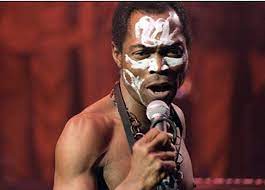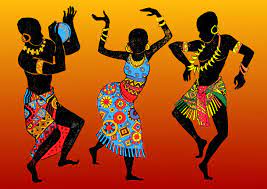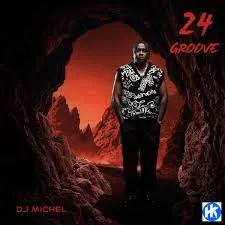Nigeria is a country known for its rich culture, diversity, and most importantly its music industry. The Nigerian music industry has evolved significantly over the years and has become a major player in the global music scene. In this article, we will take a comprehensive look at the evolution of Afro-music in Nigeria, exploring its origins, development, and current state.
Background:
Afro-music in Nigeria has its roots in the traditional music of various ethnic groups, such as the Yoruba, Igbo, and Hausa. These traditional music styles were heavily influenced by rhythms, melodies, and instruments from Africa, Europe, and the Americas. The traditional music of these ethnic groups was used to communicate stories, beliefs, and customs and was passed down from generation to generation. As Nigeria’s population grew and became more urbanized, traditional music began to evolve and incorporate elements from a variety of different styles.
The Pre-Independence Era:

Before Nigeria’s independence in 1960, the music scene in the country was not as developed as it is today. The traditional music of the different ethnic groups was still the dominant form of music in the country. However, with the influence of Western culture, some Nigerian musicians began to incorporate elements of Western music into their traditional music. This period saw the emergence of highlife music, which was a fusion of Western and African music. Highlife music became popular among the educated elite and was a reflection of the cultural change that was taking place in the country.
The Golden Age Of Afro-Music:
The 1960s and 1970s are often referred to as the golden age of Afro-music in Nigeria. This period saw the emergence of a new generation of artists who were heavily influenced by the sounds of American R&B, soul, and funk, as well as the traditional music of their own culture. Artists such as Fela Kuti, King Sunny Ade, and Ebenezer Obey became household names, and their music helped to define the sound of Afro-music in Nigeria. These artists used their music as a means of expressing their political views and fighting against the government’s corruption and oppression.
The Rise of Afrobeats:

In the 1990s and 2000s, a new genre of music emerged in Nigeria, known as Afrobeats. This style of music was heavily influenced by the high-energy rhythms and melodies of traditional Nigerian music, combined with elements of hip-hop, R&B, and electronic music.
Artists such as D’banj, P-Square, and Wizkid helped to popularize Afrobeats and made it a staple of the Nigerian music scene. Afrobeats quickly gained popularity not only in Nigeria but also in other African countries and the diaspora. This genre of music soon became the face of the Nigerian music industry and solidified its position as a major player in the global music scene.
The Present And Future Of Afro-Music In Nigeria:

Today, Afro-music in Nigeria continues to evolve and incorporate new sounds and styles. From the traditional rhythms of highlife to the contemporary beats of Afrobeats, Nigerian music continues to be a reflection of the country’s vibrant culture and diversity. With the rise of streaming platforms and social media, Nigerian artists are now able to reach a global audience and share their music with the world. The Nigerian music industry has grown in leaps and bounds, and the country now boasts of having some of the biggest music stars in the world.
The impact of Afro-music in Nigeria is not just limited to the entertainment industry, it has also played a significant role in
shaping the country’s culture and economy. The music industry has created jobs and opportunities for many Nigerians and has also been a source of income for the country through exports and collaborations with international artists. The Nigerian music industry is now worth billions of dollars and continues to grow, making it a major contributor to the country’s economy.
One of the most notable impacts of Afro-music in Nigeria is its ability to unite people from different backgrounds and cultures. Nigerian music has been able to transcend borders and bring people together through its infectious rhythms and melodies. The popularity of Afrobeats has made it a global phenomenon, with the genre being embraced by people from all over the world.
Conclusion:
The evolution of Afro-music in Nigeria has been a comprehensive journey through sound, culture, and history. From the traditional rhythms of highlife to the contemporary beats of Afrobeats, Nigerian music continues to be a reflection of the country’s vibrant culture and diversity.
The Nigerian music industry has grown to become a major player in the global music scene and has made a significant impact on the country’s culture, economy, and society. With the ongoing evolution of technology and the internet, the future of Afro-music in Nigeria looks bright, and we can expect to see even more exciting developments in the world of Afro-music in Nigeria.












